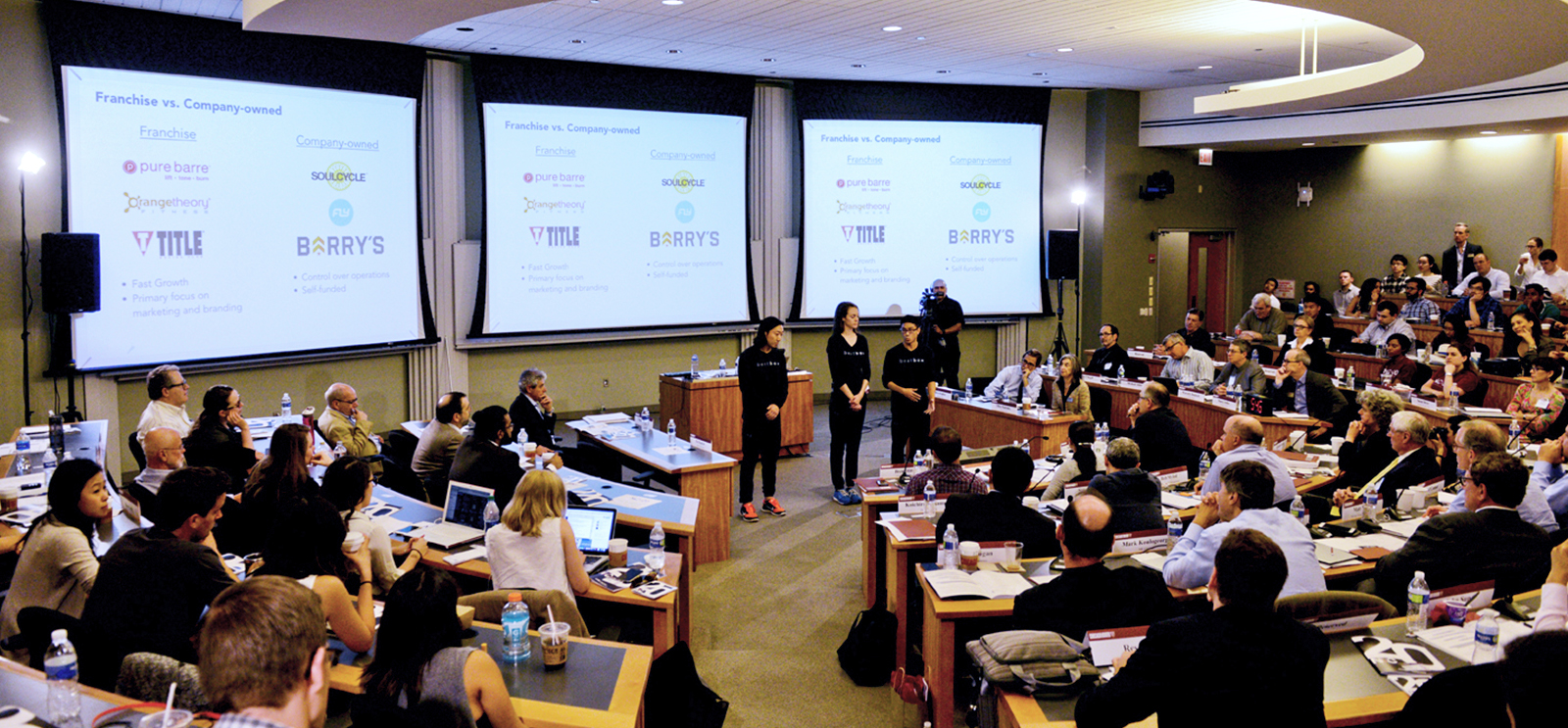
A team of researchers from Rice University, MIT, and the University of Richmond ranked the Edward L. Kaplan, MBA’71, New Venture Challenge as one of the premier start-up accelerators in the country. (Photography by Matt Marton)
A new investment program gives fledgling UChicago companies a boost.
Maroon start-ups are about to get an influx of UChicago capital. The University is designating $25 million from its endowment to invest alongside established venture funds in start-ups led by faculty, students, staff, and alumni, expanding a commitment to grow entrepreneurship and research commercialization on campus.
The Office of Investments, which manages the University’s $7.1 billion endowment, will oversee the UChicago Startup Investment Program as part of its private equity and venture capital portfolio. The $25 million in investment capital will be targeted at companies raising an early round of funding known as a series A.
The University anticipates investing in three or four new companies a year through the initiative, which is set to run for a decade. UChicago’s maximum initial investment in each company will be the lesser of $500,000 or 20 percent of the investment round. The University will require an established venture capital firm to both lead the investment round and to take a seat on the start-up’s board.
“The University is continuing to expand its commitment to support our students and faculty across the institution who are engaged in entrepreneurship,” says president Robert J. Zimmer. “By coinvesting in new companies that have independent investments by established firms, we will enhance University-wide support for start-ups while encouraging venture partners to explore investment opportunities coming out of the University.”
To qualify for the program, startups must have a significant affiliation with UChicago. Generally the start-up must either be built on University-owned intellectual property, or faculty, alumni, students, or staff must be on the founding team.
“Capital is a key resource required for scaling ventures once they have advanced to this pivotal stage,” says John Flavin, associate vice president of entrepreneurship and innovation, who leads UChicago’s Polsky Center for Entrepreneurship and Innovation. “The goal of the UChicago Startup Investment Program is to attract more venture partners to Chicago and infuse more needed capital into successful start-ups, leading to a greater number of them emerging from the University.”
The initiative builds on the endowment team’s venture investing experience. The Office of Investments made its first venture investment in 1978 and now has a stake in several venture capital funds.
“In addition to fostering innovation, we hope the UChicago Startup Investment Program will encourage our partner venture capitalists to take a deeper look in the Midwest and Chicago specifically,” says Mark Schmid, University vice president and chief investment officer. “We want to invest in companies that grow and create economic opportunities here and participate in the resulting benefits.”
Series A funding tends to be the second or third time external investors are given ownership in a start‑up. Start-ups typically receive between $3 million and $5 million from multiple venture capital funds to fuel their growth during series A.
Many successful University of Chicago–affiliated start-ups have attracted series A funding early in their development from leading venture capital firms, such as Accel, Index Ventures, LightBank, Revolution Ventures, and Andreessen Horowitz.
Some of those start-ups were top finishers in the University’s Edward L. Kaplan, MBA’71, New Venture Challenge. They include food delivery service Grubhub, which went public in 2014; payments processor Braintree, which sold to PayPal for $800 million; Base, a sales software company; and flower delivery service BloomNation. Others, including Electrochaea, which builds renewable gas storage, and RefleXion Medical, a medical device company focused on precision cancer treatment, are based on technologies developed at the University.
For the UChicago Startup Investment Program, staff at the Polsky Center for Entrepreneurship and Innovation will conduct the first round of vetting and then advance promising companies to the investment office. One source for potential companies will be the Polsky Center’s technology commercialization and licensing team, which is working to increase the number of companies arising from inventions and intellectual property developed by University researchers.
It’s likely that most qualified companies, including ones built on University-owned patents, will have completed at least one of the Polsky Center’s programs, such as the New Venture Challenge; the John Edwardson, MBA’72, Social New Venture Challenge; the College New Venture Challenge for undergraduates; the University of Chicago Innovation Fund, which invests in start-ups at an earlier stage; or the Polsky Accelerator or Incubator, where entrepreneurs get space and coaching.
The most successful of the companies that receive funding through the UChicago Startup Investment Program are expected to raise subsequent rounds of capital. Endowment officials have set aside a portion of the $25 million for participation in these later rounds, allowing for investment over the long term.
“We’re excited that the Office of Investments has partnered with the Polsky Center to launch the UChicago Startup Investment Program,” Flavin says. “This sends a strong signal to the capital markets as well as to innovators that we’re serious about helping faculty and students build fast-growing companies.”
